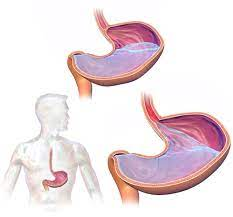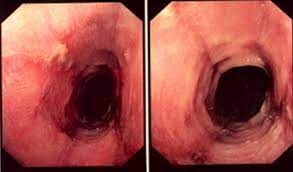Introduction
Gastro esophageal reflux disease (GERD) is a common condition, It occurs when stomach acid flows back into the esophagus, causing discomfort and other symptoms. While GERD may seem like a minor inconvenience, it can have serious consequences if left untreated. In this presentation, we will explore what GERD is, its causes, symptoms, and treatment options.
What is GERD?
GERD is a chronic digestive disorder that affects the lower esophageal sphincter (LES). The LES is a muscle that acts as a valve between the esophagus and stomach. When it functions properly, it opens to allow food and drink to pass into the stomach and then closes to prevent stomach acid from flowing back into the esophagus. However, in people with GERD, the LES doesn’t close properly, allowing acid to flow back up into the esophagus.
This can cause a range of symptoms, including heartburn, regurgitation, and difficulty swallowing. If left untreated, GERD can lead to more severe complications such as esophageal ulcers or even cancer. Therefore, it’s essential to understand what GERD is and how it affects the body.
Symptoms of GERD

The most common symptoms of GERD include
- Heartburn: A burning sensation in the chest, usually after eating, which may worsen when lying down or bending over.
- Regurgitation: The sensation of acid or food coming back up into the throat or mouth.
- Chest pain: Some people may experience chest pain, which can be mistaken for a heart attack.
- Difficulty swallowing: Narrowing of the esophagus due to chronic inflammation and scarring can make swallowing difficult.
- Chronic cough or hoarseness: Stomach acid irritating the throat can lead to a chronic cough or hoarseness.
Other symptoms may include difficulty swallowing, chest pain, and a sour taste in the mouth.
These symptoms can have a significant impact on daily life, making it difficult to eat, sleep, and carry out regular activities. It’s important to understand the impact of these symptoms to encourage people to seek medical attention if they experience any of them.
Causes of GERD
There are several factors that can contribute to the development of GERD.
Lifestyle factors such as diet, obesity, and smoking can all increase the risk of developing the condition.
Certain foods, such as spicy or fatty foods, can also trigger symptoms.
Medical conditions such as hiatal hernia and pregnancy can also increase the risk of developing GERD.
Understanding the causes of GERD can help people take steps to prevent the condition.
For example, making dietary changes, losing weight, and quitting smoking can all reduce the risk of developing GERD.
By illustrating the causes of GERD visually, we hope to encourage people to make positive lifestyle changes.
These factors can increase the risk of developing GERD, elevating the head of the bed, and eating smaller, more frequent meals can help manage symptoms.
WHAT TO BE DONE:
Dietary Modifications:
- Avoid spicy, fried, and processed foods.
- Include cooling and soothing foods such as cucumber, fennel, coconut water, and aloe vera juice.
- Consume smaller, more frequent meals rather than large meals.
- Avoid eating late at night or just before bed.
Diagnosing and Treating GERD

There are several methods for diagnosing GERD,
endoscopy and pH monitoring
Endoscopy involves inserting a thin tube with a camera into the esophagus to look for signs of damage or inflammation. pH monitoring involves measuring the amount of acid in the esophagus over a 24-hour period.
Treatment options for GERD include medication, lifestyle changes, and surgery.
Medications such as proton pump inhibitors (PPIs) can help reduce the amount of acid produced by the stomach.
Lifestyle changes such as avoiding trigger foods and losing weight can also help alleviate symptoms.
In severe cases, surgery may be necessary to strengthen the LES and prevent acid reflux.
By using case studies to demonstrate the effectiveness of these treatments, we hope to provide a comprehensive understanding of how GERD can be managed and treated.
Conclusion
In conclusion, GERD is a common condition that affects millions of people worldwide. It’s essential to understand what GERD is, its causes, symptoms, and treatment options. By seeking medical attention if you experience any symptoms, you can prevent more severe complications from developing.





